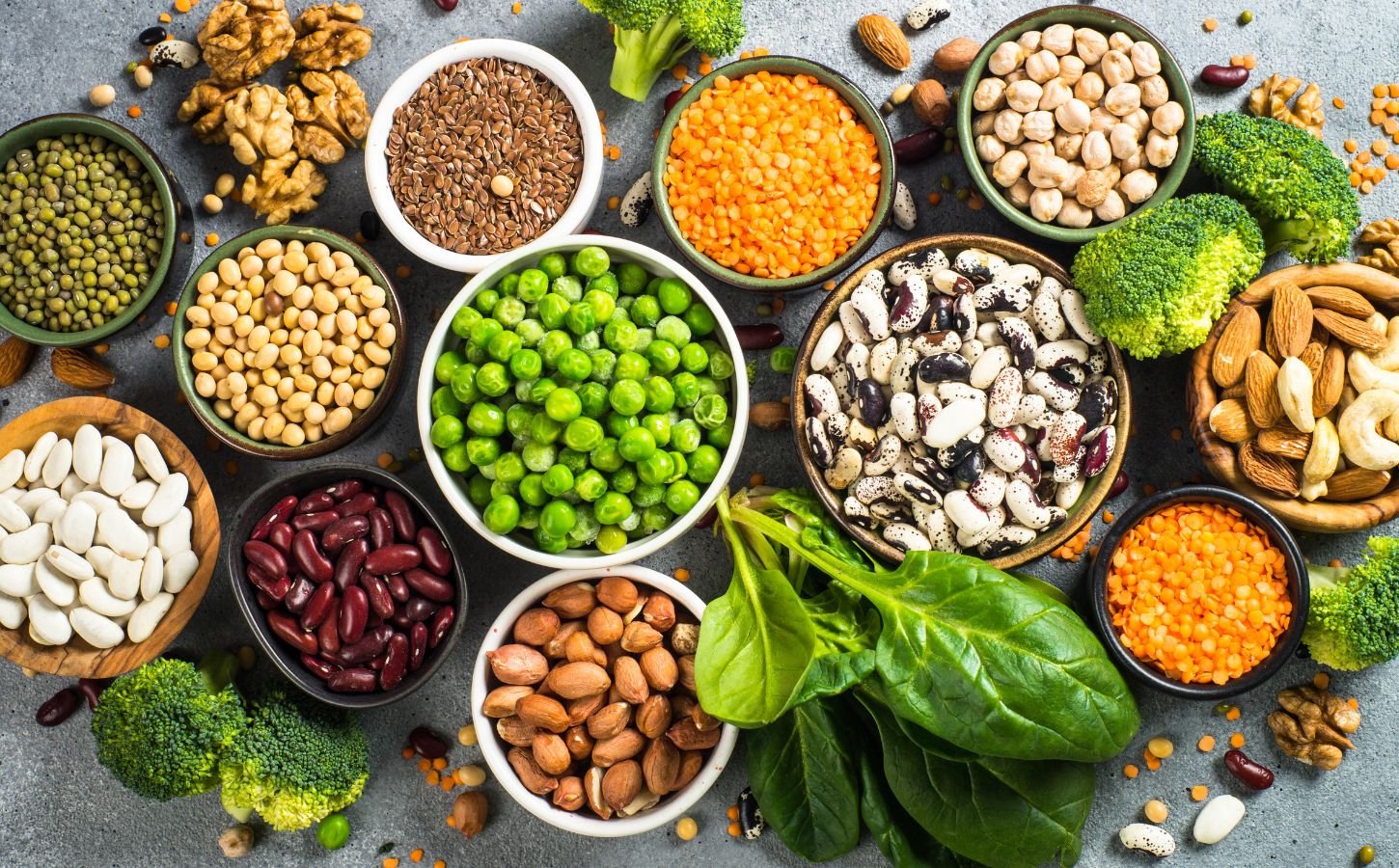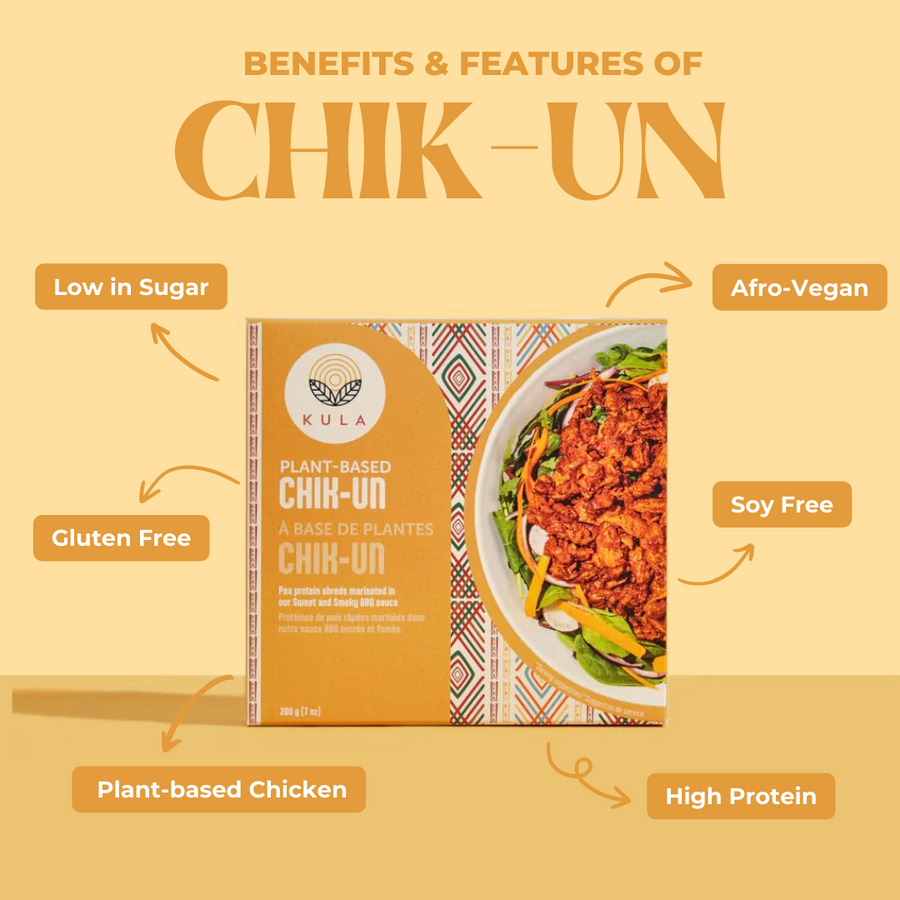Why Sugar Free Sauces Are a Game-Changer for Your Plant-Based Pantry
Why Sugar Free Sauces Are a Game-Changer for Your Plant-Based Pantry
Blog Article
Everything About Healthy And Balanced Food: Benefits of Checking Out Plant Based Options
The discussion surrounding plant-based diet regimens has actually gained significant focus recently. Lots of individuals are checking out the prospective wellness advantages, nutritional benefits, and ecological effects related to these dietary options. As people come to be a lot more knowledgeable about their food's impact on health and sustainability, questions develop regarding the usefulness of embracing such a way of living. What certain modifications can one anticipate, and just how might these choices improve not just personal health and wellness yet additionally the planet's future?
Understanding Plant-Based Diet Regimens
Many people connect plant-based diet plans mainly with vegetarianism or veganism, these diet regimens can incorporate a wide variety of eating patterns that focus on entire, minimally refined plant foods. Such diets often consist of fruits, vegetables, entire grains, seeds, nuts, and vegetables, while limiting or getting rid of animal items. This versatility permits individuals to tailor their dietary choices according to individual preferences and dietary requirements. Some might take on a primarily plant-based diet plan while still occasionally consuming meat or dairy products, commonly described as a flexitarian strategy. The focus continues to be on including more plant foods, which can result in a diverse selection of tastes and dishes. Understanding these various interpretations of plant-based eating is vital for appreciating its accessibility and appeal in modern food society.
Health And Wellness Perks of Plant-Based Foods
The health advantages of plant-based foods are significant, providing a nutrient density benefit that sustains overall well-being. Study suggests that these foods can boost heart health and play a vital function in effective weight management. By including more plant-based options, individuals might boost their nutritional options and advertise long-lasting health.
Nutrient Thickness Advantage
Nutrient thickness plays a necessary role in the wellness benefits of plant-based foods, making them an engaging choice for those looking for a well balanced diet plan. Plant-based foods, such as fruits, veggies, beans, nuts, and whole grains, are usually abundant in necessary vitamins, minerals, and anti-oxidants while being reduced in calories. This high nutrient density allows individuals to eat fewer calories while still satisfying their nutritional demands. Furthermore, these foods are loaded with dietary fiber, promoting digestion health and wellness and assisting in weight monitoring. By including nutrient-dense plant-based options, customers can enhance their overall health and wellness, support their immune systems, and reduce the danger of chronic diseases. Eventually, the nutrient density of plant-based foods underscores their relevance in a health-conscious lifestyle.
Heart Wellness Enhancement
:max_bytes(150000):strip_icc()/EWL-plant-based-foods-with-more-protein-than-an-egg-8424134-hero-3x2-42d27feb38e94570a6e5203bb0e4e666.jpg)
Weight Monitoring Assistance
In addition to advertising heart health, a plant-based diet can considerably aid in weight administration. This dietary method highlights entire foods such as fruits, veggies, legumes, nuts, and whole grains, which are normally lower in calories and greater in fiber contrasted to animal-based items. The high fiber web content aids increase satiation, lowering total calorie consumption. Moreover, plant-based diets are often abundant in crucial nutrients while reduced in undesirable fats, making it much easier to maintain a healthy weight. Plant Based Beef. Study suggests that individuals who embrace a plant-based way of life have a tendency to have reduced body mass indexes (BMIs) and experience more effective fat burning compared to those who eat meat-heavy diet plans. Welcoming plant-based options is a tactical option for efficient weight management.
Nutritional Worth of Plant-Based Ingredients
Plant-based active ingredients are rich in essential nutrients, providing a diverse variety of vitamins, minerals, and antioxidants that add to general health and wellness. A contrast of healthy protein sources reveals that while animal products are typically considered as superior, numerous plant-based choices provide adequate protein and various other useful substances. Comprehending the dietary worth of these components can aid individuals make educated nutritional choices.
Vital Nutrients in Plants
Nutrient-rich components located in plants offer a diverse selection of essential nutrients that contribute significantly to general health. These components are abundant in vitamins A, C, and K, which support immune function, vision, and blood clotting, respectively. On top of that, plants supply important minerals such as calcium, magnesium, and potassium, important for heart health, muscular tissue feature, and bone stamina. The visibility of fiber in plant-based foods aids digestion and advertises a healthy digestive tract microbiome. Antioxidants, located abundantly in vegetables and fruits, help combat oxidative stress and anxiety and minimize swelling. Many plant foods are low in calories yet high in nutrients, making them an excellent option for those looking for to keep a healthy weight while guaranteeing suitable nutrient consumption.

Contrasting Healthy Protein Sources
Healthy protein resources vary significantly in their dietary accounts, with plant-based active ingredients offering one-of-a-kind benefits. Unlike pet healthy proteins, which commonly include saturated fats and cholesterol, plant healthy proteins tend to be reduced in these undesirable parts. Legumes, nuts, seeds, and whole grains are rich in crucial amino acids, fiber, vitamins, and minerals. Lentils supply high protein material together with substantial iron and folate, while quinoa is a complete protein, using all 9 vital amino acids. In addition, plant-based proteins are typically gone along with by antioxidants and phytochemicals that support overall health. The change to plant-based protein resources not just boosts nutritional intake but additionally aligns with sustainable dietary methods, reducing environmental effect and advertising lasting health advantages.
Environmental Impact of Plant-Based Consuming
As awareness of environment adjustment grows, numerous individuals are checking out lasting nutritional selections that can substantially lessen their ecological footprint. Plant-based consuming has actually arised as a substantial contributor to minimizing greenhouse gas exhausts, which are largely related to animals manufacturing. The cultivation of fruits, legumes, vegetables, and grains commonly calls for less resources, such as water and land, compared to animal farming. Additionally, plant-based diet plans can bring about decreased logging, as less land is needed for grazing animals or growing animal feed. By changing in the direction of plant-based options, consumers can support biodiversity and promote much healthier ecosystems. In general, accepting plant-based eating not just advantages personal health and wellness but likewise represents a vital action towards environmental sustainability and conservation efforts.
Conquering Common Misconceptions
While many individuals recognize the benefits of a plant-based diet, several misconceptions typically hinder them from completely welcoming this way of living. A typical idea is that plant-based diets do not have sufficient healthy protein; nonetheless, countless plant sources, such as beans, nuts, and tofu, give sufficient healthy protein. Furthermore, some think that this diet is pricey, when as a matter of fact, staples like beans, rice, and seasonal vegetables can be rather budget-friendly. Another misunderstanding is that plant-based consuming is extremely limiting, whereas it really provides a varied selection of flavors and foods. Lastly, many stress that a plant-based diet plan might cause shortages, yet with correct preparation, people can obtain all needed nutrients, including minerals and vitamins, while taking pleasure in a wide array of scrumptious dishes.
Tips for Transitioning to a Plant-Based Way of living
Making the shift to a plant-based way of living can be an enriching experience, though it often calls for some support to navigate the first adjustments. People are motivated to begin progressively, integrating even more fruits, vegetables, vegetables, and entire grains right into their meals while reducing meat and dairy products intake. Meal preparation is important; preparing a weekly food selection can assist alleviate the change and stop final unhealthy selections. Discovering brand-new recipes and cooking methods can also maintain and enhance the experience exhilaration about plant-based consuming. Furthermore, signing up with assistance groups or communities can provide motivation and share important pointers. Finally, remaining notified regarding nutrition guarantees well balanced meals, protecting against shortages while promoting a healthy, satisfying plant-based way of living.
Delicious Plant-Based Meal Concepts
Exploring scrumptious plant-based meal ideas can motivate people to welcome an extra nourishing diet regimen. One prominent choice is a hearty quinoa salad, featuring cherry tomatoes, cucumber, and a zesty lemon-tahini dressing. An additional favorite is a mouthwatering lentil stew, packed with carrots, celery, and fragrant natural herbs, excellent for a comforting dinner. For breakfast, overnight oats made with almond milk, chia seeds, and covered with fresh berries give a click this site healthy start to the day. Additionally, a dynamic vegetable stir-fry with tofu and a selection of colorful veggies can be a quick yet pleasing dish. check this site out Luscious avocado toast on whole-grain bread, sprayed with flavors and seeds, provides an easy yet flavorful snack. These meals showcase the variety and splendor of plant-based consuming.

Frequently Asked Inquiries
Can a Plant-Based Diet Supply Sufficient Protein?
The concern of whether a plant-based diet plan can offer sufficient healthy protein prevails. Numerous resources, consisting of vegetables, nuts, seeds, and entire grains, can satisfy healthy protein needs effectively, supporting a nourishing and well balanced diet regimen for people.
Are Plant-Based Diets Appropriate for Children?
The suitability of plant-based diets for children relies on careful planning. Appropriate nutrients should be ensured, consisting of vitamins, minerals, and healthy proteins. With proper advice, such diets can sustain healthy and balanced growth and advancement in kids.
How Do I Eat in restaurants on a Plant-Based Diet regimen?
Eating in restaurants on a plant-based diet regimen entails looking for dining establishments with varied menus, requesting for modifications, and discovering vegan-friendly options. Preparation in advance and interacting nutritional choices can enhance the eating experience while maintaining nutritional choices.
What Are Common Allergens in Plant-Based Foods?
Typical allergens in plant-based foods include soy, gluten, nuts, and seeds - Plant Based Chicken. Individuals adhering to a plant-based diet plan ought to recognize these irritants and review labels meticulously to prevent adverse responses and guarantee secure intake
Can Plant-Based Diets Assist With Fat Burning?
Research study suggests that adopting a plant-based diet might promote weight management because of its typically reduced calorie thickness and higher fiber content. This combination can enhance satiation, aiding individuals handle their caloric intake effectively. Lots of individuals associate plant-based diet plans mostly with vegetarianism or veganism, these diet regimens can encompass learn this here now a broad variety of consuming patterns that prioritize entire, minimally processed plant foods. Nutrient density plays a vital role in the health advantages of plant-based foods, making them an engaging selection for those looking for a balanced diet regimen. Plant-based diet plans have actually been shown to substantially boost heart health and wellness, as they usually include components that support cardio feature. In addition to advertising heart wellness, a plant-based diet regimen can considerably aid in weight monitoring. A common idea is that plant-based diet plans do not have adequate healthy protein; nevertheless, various plant resources, such as legumes, nuts, and tofu, offer adequate protein.
Report this page